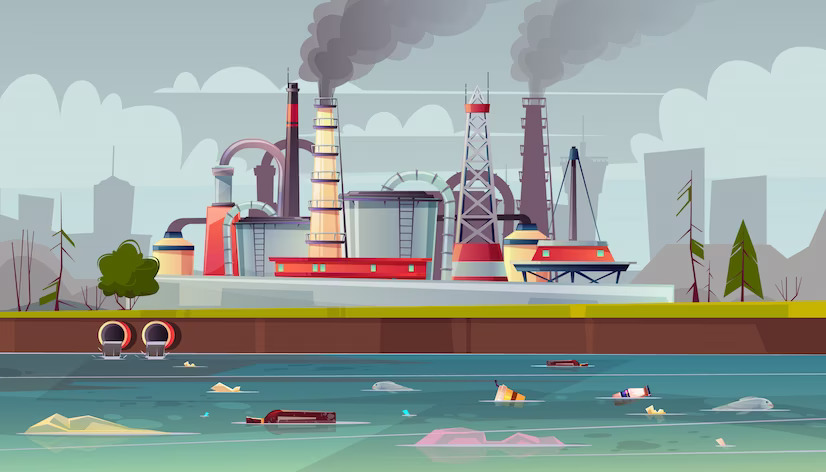Why Waste Water Treatment Plant is Important for Industries?
Blog Summary
Waste water treatment plants, also known as sewage treatment plants, play a crucial role in the safe and responsible disposal of industrial waste water. Here are some of the key points to consider when discussing the importance of waste water treatment plants for industries:
Environmental protection, Compliance with regulations, Resource recovery, Reduce public health risks, Protection of aquatic life, Water reuse & conservation, Climate change adaptation, Cost savings.
- Environmental protection: Waste water treatment plants help protect the environment by removing pollutants from industrial waste water before it is released into the environment. This helps to prevent contamination of soil, water, and air, which can have serious consequences for the health of people and wildlife.
- Compliance with regulations: Industries are subject to strict regulations when it comes to the disposal of waste water. Waste water treatment plants help industries comply with these regulations by removing pollutants and other contaminants from their waste water.
- Resource recovery: Industrial waste water often contains valuable resources such as nutrients and energy. These resources can be recovered by the treatment plant and reused, which helps reduce the overall cost of waste water disposal.
- Reduce public health risks: Industrial waste water can contain harmful pathogens, chemicals and heavy metals that can lead to serious health problems if released into the environment without being treated. Wastewater treatment plants help remove these contaminants, reducing the risk to public health.
- Protection of aquatic life: Treated waste water is much less harmful to aquatic life, which is important for maintaining biodiversity and protecting ecosystems. Overall, industrial waste water treatment plants play a crucial role in protecting the environment, public health, and aquatic life, as well as enabling industries to comply with regulations and reduce their overall waste disposal costs.
- Water reuse and conservation: Treated wastewater can be reused for irrigation, industrial processes, cooling towers and other applications. This can help conserve water resources in regions with water scarcity, reduce the strain on drinking water supplies and reduce the overall water footprint of the industry.
- Climate change adaptation: Treated wastewater can also be used to replenish groundwater and surface water resources, augmenting supplies for irrigation and other purposes. By doing this, it can help mitigate the effects of climate change, such as droughts, floods, and water scarcity.
- Cost savings: The investment in a proper waste water treatment facility could bring long-term savings for the industry. Treated water can be reused within the facility, reducing the need to purchase new water, and reducing the volume of water to be treated or disposed of, which in turn reduces disposal costs.
Waste water treatment plants are crucial for industries because they help to purify industrial waste water before it is released back into the environment.
Industrial activities often generate a significant amount of waste water, which can contain a variety of contaminants such as heavy metals, chemicals, and organic matter. If this waste water is not properly treated, it can cause significant harm to the environment, including pollution of surface and ground water resources and damage to aquatic ecosystems.
Waste water treatment plants use a combination of physical, chemical, and biological processes to remove contaminants from industrial waste water. These processes can include filtration, sedimentation, and biological treatment. The specific treatment methods used will depend on the type and quantity of contaminants present in the waste water.
One of the main benefits of waste water treatment plants for industries is that they help to prevent environmental pollution. By removing contaminants from industrial waste water, treatment plants can help to protect water resources and ecosystems. This not only helps to preserve the environment, but it can also help to prevent costly clean-up efforts and legal action.
In addition to protecting the environment, waste water treatment plants can also benefit industries by helping them to comply with regulations. Many countries have laws in place that mandate the treatment of industrial waste water before it is released back into the environment. By treating their waste water, industries can avoid fines and penalties for non-compliance.
Overall, waste water treatment plants are essential for industries as they help to purify industrial waste water and prevent environmental pollution. They are also important for regulatory compliance, and as it can also help to reduce cost of cleaning, environmental penalties and prevent environmental hazards and severe health hazards caused by industrial waste water.
